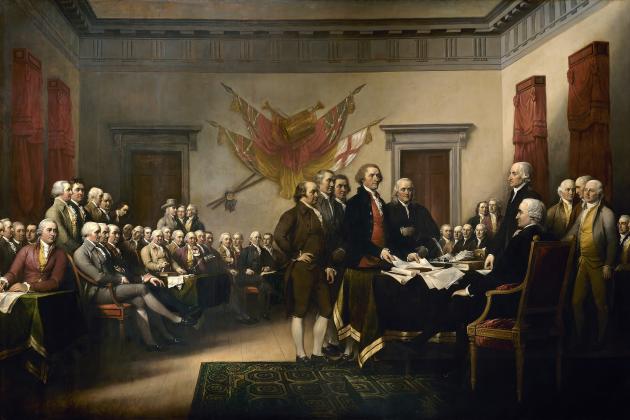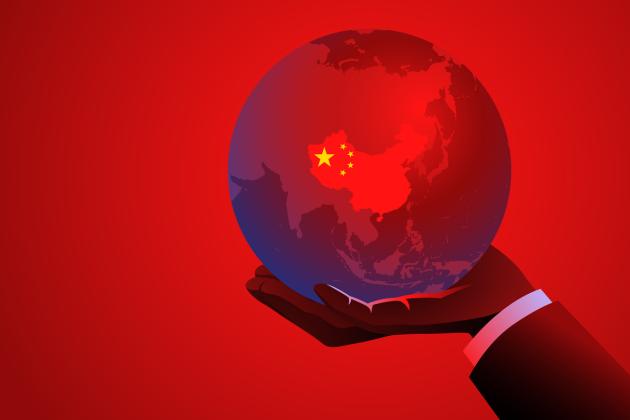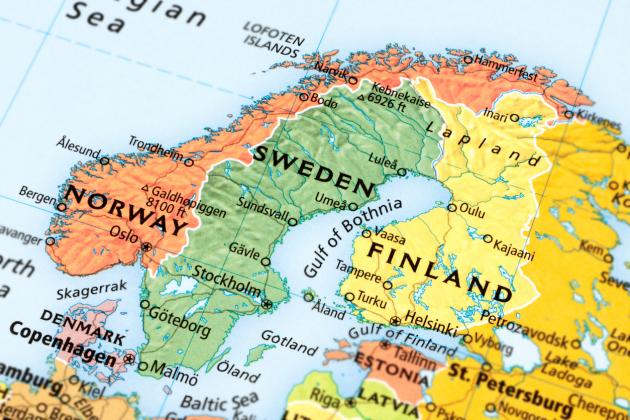PARTICIPANTS
Larry Summers, Terry Anderson, Adrien Auclert, Michael Bordo, Michael Boskin, David Brady, Elizabeth Cobbs, John Cochrane, Niall Ferguson, Morris Fiorina, Paul Gregory, John Gunn, Bob Hall, Rick Hanushek, Nate Hilger, Jim Hoagland, Bob Hodrick, Nick Hope, Dan Kessler, Roman Kraeussel, Pete Klenow, Arvind Krishnamurthy, Jennifer La’O, Stephen Langlois, Hanno Lustig, Michael McFaul, Henry Miller, David Mulford, Michael Peters, Paul Peterson, Josh Rauh, Greg Rosston, Amit Seru, George Shultz, Kevin Warsh.
ISSUES DISCUSSED
Lawrence Summers, President Emeritus and Charles W. Eliot University Professor at Harvard University, and former U.S. treasury secretary, talked about “Responsible Nationalism.”
Summers started with a review of the previous broad policy consensus, or “what we all believed two years ago.” The period between WWI and WWII was marked by disastrous mismanagement, trade restrictions, immigration restrictions, and a rise of nationalism. Which led to depression and WWII. The UK, the leader in the 19th century was unable to lead, and the US unwilling to do so.
The architects of the postwar consensus saw the damage, and created an internationally integrated system, reflected partly in institutions such as NATO, GATT/WTO, IMF, World Bank, and Bretton woods. Bumps aside, this system led to enormous economic prosperity, winning the cold war, and the rise from poverty of vast swaths of the planet. That there has been no major-power war is essentially unprecedented since the end of the Roman Empire. Economically, this system was based on the freedom of trade and of investment capital to move around the world, and increasingly of people to do so as well.
Granted many questions and disagreements remained. Are capital controls ever appropriate? Since we typically do not compensate the losers from trade (or domestic innovation), how do we keep such a system politically sustainable?
But these premises were smashed in the recent election. All four of the finalists – Trump, Clinton, Cruz, Sanders – opposed the TPP, which became a political requirement. This fact is especially surprising for three reasons: 1) The extraordinary costs to the US from backing away from an agreement we spurred 2) It was good mercantilism. US trade barriers are already quite low. We gained far more export advantage than we lost import restriction 3) The foreign policy consequences of leaving our allies in the lurch in the face of Chinese expansionism.
That said, there is plenty of sound reasons to dislike the TPP. Trade agreements are far from economists’ views of free goods trade. Much of the TPP involves enforcement of intellectual property agreements, and involves the right of large, internationally owed corporations to move capital around the globe as they fit, trampling many notions of sovereignty not just the right to erect trade barriers. That prominent economists such as Stiglitz, Sachs, and Krugman all came out against the TPP gave such opposition at least an appearance of coherent legitimacy.
And this is a general and worldwide phenomenon, as we see with Brexit and the rise of nationalist parties in Europe and the criticism of NAFTA.
Furthermore, Summers reflected on his experience in helping NAFTA to come about, and viewed himself and other economists as not sufficiently thoughtful that a new low cost competitor hurts our position as a producer even as it helps our position as a consumer – the “income” or “terms of trade” effect. As Ferguson pointed out later, like the UK before us, we tend to favor free trade when we are the new low cost producer. Summers said that we used to take the proposition that the success of others was good for us as axiomatic, and now he too shares doubts on that proposition.
In his view, economists allowed the universal acceptance of the benefit of free trade to be carried too far. Does free trade mean that there should be the same intellectual property rules everywhere? That we should use trade leverage to improve IP rules? That intellectual property rules should be subsumed to an international body, not a country’s own laws and courts? Should nations have no say on, say the content of magazines? Should they not be able to restrict foreign currency bank deposits? (Throughout Summers offered some sympathy for capital controls, which brought up some lively discussion) Our agreements are not “free trade” agreements, as already a lot of them impose our labor, environmental, labeling, commercial practices standards on other countries. All of this goes far beyond the simple logic that it is wise for England to produce wool and Portugal to produce wine and send it to each other.
More deeply, Summers opined that “trade agreements” now largely serve the interests of large corporations, who are not even owned by US persons.
He described how a typical agreement is formed. The US agrees to discuss trade, say, with Korea. We need a negotiating list, so the US trade representative scratching its head calls up the obvious subjects – businesses and the business roundtable.
But such companies care as much about the right to produce in Malaysia, send the products to Korea and the profits to Ireland, as they do to produce in the US and export.
So the world no longer trusts elites. This is structural and not entirely irrational. Summers view that it is right to feel some frustration that success for others is not necessarily good for US workers, or all US workers. There was some clear overselling of past trade agreements.
A quick discussion erupted. Paul Peterson pointed out that immigration not trade proved the flashpoint for the Trump campaign, and Bob Hall pointed out that education is the real problem for the “middle class” not trade. General agreement that trade is not responsible for the problems of the “middle class,” and that the election was not fought on these rational reasons for doubting trade agreements.
Now, what to do? What kind of policy solutions can accommodate the new nationalism, the actual and perceived deficiencies of the current international order? Let us hope we don’t have to go through the 1930s and 1940s again to rebuild a solid international order.
Summers inaugurated a discussion of individual vs. regional trade agreements. Individual ones can be tailored, but lead to a lot of complexity and rent seeking, and the advantage of international agreements is that one can more easily fend of requests for protection.
Summers argued for a major attempt to explain the benefits of trade. (We’re trying, Larry!)
Summers opined that international cooperation could be more pro-worker, He favors cooperation on taxation, to keep the spread of “mobile capital” from benefitting too much, and preventing evasion of financial regulation through offshore jurisdictions. (This was controversial)
Eliminating corporate subsidies such as the ex-im bank.
Most of all, international economic cooperation should serve middle class and not the mobile capital of large global corporations. Pressed, he admitted happily that he didn’t know just how – that he is forming the questions at this shocking new state of our politics rather than advancing an agenda of answers.
A round of hearty discussion followed. David Brady noted from poll data just how quickly opinions had changed, suggesting that opinions can change again.
Niall Ferguson added an important historical dimension, reminding us that the US was historically highly protectionist when the UK had the absolute advantage in manufacturing, and only turned free trade and internationalist after WWII when we were the economic power. He reminded us that at Davos, Chinese party chairman Ping delivered the clearest speech on free trade.
He also suggested there might be method to the madness. He reported that the Chinese are scared of Trump, and willing to make big concessions on trade. Whether one could credibly fake being crazy without actually being crazy followed as a discussion topic, and whether fear leads to concessions or hardens Chinese nationalists was another.
In sum, I was impressed by the workshop as well as the usual enlightening commentary. One can take two approaches to dealing with the sudden change in the politics of economic policy. One can say, well, I don’t care who they voted for, or how they’re feeling, it doesn’t change the cause and effect reality of economic science. Adam Smith and David Ricardo explained why trade is good, and accounting identities haven’t changed. Go on explaining that patiently. Summers is taking a different approach – listen to the political winds, which can blow terrible storms across economic policies as they did in the 1920s and 1930s. Think what we can do to address the genuine concerns that those feelings – the rise of nationalism – represent, and try to craft something better, if imperfect, that realistically bends to those concerns. That takes a lot of humility, and resulted in a fascinating discussion.
- John Cochrane









